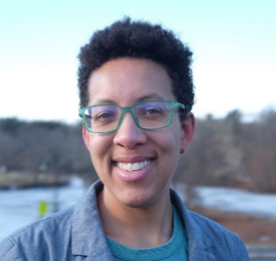 Abstract: In this talk, I will discuss work related to mechanically “programming” soft sensors to respond to a particular mechanical deformation. Advances in 3D-printing, soft polymer fabrication, and other rapid fabrication processes have made the vision of conformal and stretchable mechanical sensors for wearable devices and soft robotics possible. One limitation of these sensors is their low selectivity between different modes of mechanical deformation, such as strain, torsion, and bending.
Abstract: In this talk, I will discuss work related to mechanically “programming” soft sensors to respond to a particular mechanical deformation. Advances in 3D-printing, soft polymer fabrication, and other rapid fabrication processes have made the vision of conformal and stretchable mechanical sensors for wearable devices and soft robotics possible. One limitation of these sensors is their low selectivity between different modes of mechanical deformation, such as strain, torsion, and bending.
I will present recent work in enhancing the selectivity of stretchable sensors by using non-planar sensor morphology to bias the sensor towards a particular deformation mode. I will discuss projects including designing a sensor with electrically-tunable sensitivity and the fabrication origami-patterned, deformation-selective flexible sensors.
Biographical Sketch: Kris Dorsey is an assistant professor of engineering in the Picker Engineering Program at Smith College. She was a President’s Postdoctoral Fellow at the University of California, Berkeley and University of California, San Diego. Dr. Dorsey graduated from Carnegie Mellon University with a Ph.D. in Electrical and Computer Engineering and earned her Bachelors of Science in Electrical and Computer Engineering from Olin College.
She founded The MicroSMITHie Lab at Smith College to investigate micro- and miniature-scale sensor design and to prepare undergraduates for graduate study in engineering. Her current research interests include strain-stable, hyperelastic components, novel morphology soft sensors, and sensors for soft robots and wearable devices.
Dr. Dorsey has co-authored several publications on hyperelastic strain sensors, novel soft lithography processes, and the stability of gas chemical sensors. In 2019, she received the NSF CAREER award.